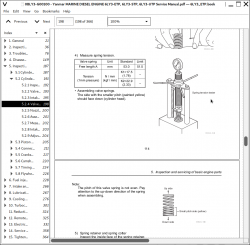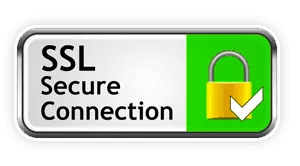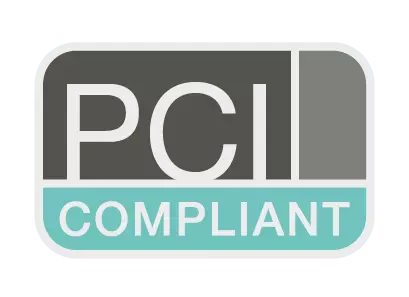Yanmar MARINE DIESEL ENGINE 6LY3-ETP, 6LY3-STP, 6LY3-UTP Repair Service Manual
Complete service repair manual with Electrical Wiring Diagrams for Yanmar MARINE DIESEL ENGINE 6LY3-ETP, 6LY3-STP, 6LY3-UTP, with all the technical information to maintain, diagnose, repair, rebuild like professional mechanics.
Yanmar MARINE DIESEL ENGINE 6LY3-ETP, 6LY3-STP, 6LY3-UTP workshop service repair manual includes:
* Numbered table of contents easy to use so that you can find the information you need fast.
* Detailed sub-steps expand on repair procedure information
* Numbered instructions guide you through every repair procedure step by step.
* Troubleshooting and electrical service procedures are combined with detailed wiring diagrams for ease of use.
* Notes, cautions and warnings throughout each chapter pinpoint critical information.
* Bold figure number help you quickly match illustrations with instructions.
* Detailed illustrations, drawings and photos guide you through every procedure.
* Enlarged inset helps you identify and examine parts in detail.
PRODUCT DETAILS:
Total Pages: 366 pages
File Format: PDF (Internal Links, Bookmarked, Table of Contents, Searchable, Printable, high quality)
Language: English
0BLY3-G00100 - Yanmar MARINE DIESEL ENGINE 6LY3-ETP, 6LY3-STP, 6LY3-UTP Service Manual.pdf
MAIN SECTIONS
1. General...21
1.1 Exterior views...21
1.2 Main specifications...22
1.3 Fuel oil, lubricating oil and cooling water...23
1.3.1 Fuel oil...23
1.3.2 Lubricating oil...25
1.3.3 Cooling water...27
1.4 Engine outline...29
1.5 Piping diagrams...31
1.6 Exhaust gas emission regulation...33
1.6.1 Engine identification...33
1.6.2 EPA exhaust gas emission standard...34
1.6.3 EPA guarantee conditions for emission standard...35
2. Inspection and adjustment...36
2.1 Periodic maintenance schedule...36
2.2 Periodic inspection and maintenance procedure...38
2.2.1 Check before starting...38
2.2.2 Inspection after initial 50 hours or one month operation...42
2.2.3 Inspection every 50 hours or monthly...44
2.2.4 Inspection on initial 250 hours or one year...49
2.2.5 Inspection every 250 hours or one year...55
2.2.6 Inspection every year...61
2.2.7 Inspection every 500 hours or two years...63
2.2.8 Inspection 2,000 hours or every two years...64
2.2.9 Inspection every 1,000 hours or four years...65
2.2.10 Inspection every 2000 hours or eight years...67
2.3 Adjusting the no-load minimum speed...71
2.4 Thermostat inspection...72
2.5 Test running...73
2.5.1 Preliminary precautions...73
2.5.2 Test running procedure...73
2.5.3 Check points and precautions during running...74
2.6 Long storage...75
3. Troubleshooting...76
3.1 Preparation before troubleshooting...76
3.2 Troubleshooting...77
3.2.1 Troubleshooting from trouble symptom...77
3.2.2 Troubleshooting of fuse...92
3.3 Trouble code...100
3.3.1 List of DTC (Diagnostic Trouble Code)...100
3.3.2 Temperature / Pressure Sensor Diagnosis...136
3.3.3 Other Wiring Diagram...142
3.3.4 TELEFLEX i5501E Display "Alarm Screen Information"...148
3.3.5 ECU Connector Pin Configuration...148
3.3.6 Abbreviation...148
4. Disassembly and reassembly...149
4.1 Disassembly and reassembly precautions...149
4.2 Disassembly and reassembly tools...150
4.2.1 General hand tools...150
4.2.2 Special hand tools...152
4.2.3 Measuring instruments...155
4.2.4 Other material...159
4.3 Disassembly and reassembly...161
4.3.1 Disassembly...161
4.3.2 Reassembly...167
5. Inspection and servicing of basic engine parts...187
5.1 Cylinder block...187
5.1.1 Inspection of parts...187
5.1.2 Cleaning of oil holes...187
5.1.3 Color check procedure...188
5.1.4 Replacement of plugs...189
5.1.5 Cylinder bore measurement...190
5.2 Cylinder head...191
5.2.1 Inspecting the cylinder head...192
5.2.2 Valve seat correction procedure...193
5.2.3 Intake / exhaust valves, valve guides...195
5.2.4 Valve springs...198
5.2.5 Nozzle sleeve...200
5.2.6 Assembling the cylinder head...201
5.2.7 Measuring top clearance...202
5.2.8 Intake and exhaust rocker arms...203
5.2.9 Adjustment of valve clearance...204
5.3 Piston and piston pins...205
5.3.1 Piston...205
5.3.2 Piston pin...207
5.3.3 Piston rings...208
5.4 Connecting rod...211
5.4.1 Inspecting the connection rod...211
5.4.2 Crank pin metal...213
5.4.3 Piston pin bushing...215
5.4.4 Assembling piston and connecting rod...216
5.5 Crankshaft and main bearing...217
5.5.1 Crankshaft...217
5.5.2 Main bearing...219
5.6 Camshaft and Tappets...220
5.6.1 Camshaft...220
5.6.2 Tappets...222
5.7 Timing gear...224
5.7.1 Inspecting the gears...224
5.7.2 Gear timing marks...225
5.8 Flywheel and housing...226
5.8.1 Specifications of flywheel...226
5.8.2 Ring gear...227
5.8.3 Position of top dead center...227
6. Fuel injection equipment...228
6.1 Fuel Injection pump / governor / timer...228
6.1.1 Fuel system diagram...228
6.1.2 Fuel injection pump specifications...229
6.1.3 Governor structure and function...231
6.1.4 Timer structure and function...232
6.1.5 Removing a fuel injection pump assembly...236
6.1.6 Installing a fuel injection pump assembly...239
6.1.7 Troubleshooting of fuel injection pump...247
6.2 Fuel Injection nozzle...249
6.2.1 Functioning of fuel injection nozzle...249
6.3 Fuel feed pump...251
6.3.1 Fuel feed pump specifications...252
6.3.2 Fuel feed pump disassembly...252
6.3.3 Fuel feed pump inspection...253
6.3.4 Fuel feed pump reassembly...253
6.3.5 Fuel feed pump adjustment...254
6.4 Fuel filter...256
6.4.1 Fuel filter specifications...256
6.4.2 Fuel filter inspection...257
6.5 Electronic Control System...258
7. Intake and exhaust system...266
7.1 Intake system...266
7.2 Exhaust system...266
7.2.1 Mixing elbow inspection...266
8. Lubrication system...267
8.1 Lubrication system...267
8.2 Lube oil pump...268
8.2.1 Lube oil pump construction...268
8.2.2 Specifications of lube oil pump...269
8.2.3 Lube oil pump disassembly and reassembly...270
8.2.4 Oil pressure control valve construction...272
8.3 Lube oil filter...273
8.3.1 Lube oil filter construction...273
8.3.2 Lube oil filter replacement...273
8.4 Lube oil cooler...274
8.4.1 Lube oil cooler construction...274
8.4.2 Inspecting the lube oil cooler...274
8.5 Rotary waste oil pump (Optional)...275
9. Cooling water system...276
9.1 Cooling water system...276
9.2 Seawater pump...277
9.2.1 Specifications of seawater pump...277
9.2.2 Seawater pump disassembly...278
9.2.3 Seawater pump Inspection...278
9.2.4 Seawater pump reassembly...279
9.3 Fresh water pump...280
9.3.1 Fresh water pump construction...280
9.3.2 Specifications of fresh water pump...281
9.3.3 Fresh water pump disassembly...281
9.3.4 Fresh water pump inspection...282
9.4 Heat exchanger...284
9.4.1 Heat exchanger construction...284
9.4.2 Specifications of heat exchanger...284
9.4.3 Disassembly and reassembly...284
9.4.4 Heat exchanger inspection...285
9.5 Pressure cap and coolant recovery tank...286
9.5.1 Pressure cap construction...286
9.5.2 Pressure cap pressure control...286
9.5.3 Pressure cap inspection...287
9.5.4 Function of the coolant recovery tank...287
9.5.5 Specifications of coolant recovery tank...287
9.5.6 Mounting the coolant recovery tank...288
9.5.7 Precautions on usage of the coolant recovery tank...288
9.6 Thermostat...289
9.6.1 Functioning of thermostat...289
9.6.2 Thermostat construction...289
9.6.3 Characteristics of thermostat...290
9.6.4 Thermostat inspection...290
9.6.5 Testing the thermostat...290
9.7 Seacock (Optional)...291
9.8 Bilge pump and bilge strainer (Optional)...292
9.8.1 Introduction...292
9.8.2 Description...293
9.8.3 Cautions...294
9.8.4 Assembly procedure...296
9.8.5 Cautions for Assembling...298
9.8.6 Troubleshooting...300
10. Turbocharger...301
10.1 Construction and function...302
10.1.1 Outline...302
10.2 Standards for maintenance and check...304
10.2.1 Standards for maintenance and check...304
10.2.2 Tightening torque...305
10.3 Periodical checking procedure...306
10.3.1 Periodical checking interval...306
10.3.2 Checking procedure...306
10.4 Disassembly procedure...308
10.4.1 Preparations for disassembly...308
10.4.2 Check before disassembly...310
10.4.3 Disassembly...311
10.5 Cleaning and checking procedure...313
10.5.1 Cleaning...313
10.5.2 Checking procedure...315
10.6 Reassembling procedure...318
10.6.1 Preparations for reassembly...318
10.6.2 Reassembling procedure...318
10.7 Handling after reassembly...321
10.7.1 Precautions for mounting the turbocharger to the engine...321
10.8 Troubleshooting...322
10.8.1 Exhaust gas is dense...322
10.8.2 Whitish exhaust gas...322
10.8.3 Too early oil shortage...323
10.8.4 Output drop...323
10.8.5 Poor follow-up of supercharger...323
10.8.6 Unusual sound or vibration...323
11. Reduction and reversing gear...324
12. Remote control...325
12.1 Electronic control system (ECS)...325
12.1.1 Digital display...326
12.1.2 Rocker switch panel...328
12.1.3 Control head (Shift &Throttle)...329
13. Electrical system...331
13.1 Electrical system...331
13.1.1 Wiring diagram...331
13.2 Battery...333
13.2.1 Construction...333
13.2.2 Battery capacity and battery cables...334
13.2.3 Inspection...335
13.2.4 Charging...337
13.2.5 Battery storage precautions...338
13.3 Starting Motor...339
13.3.1 Specifications...339
13.3.2 Characteristics...339
13.3.3 Structure...340
13.3.4 Wiring diameter of a starting motor...342
13.4 Alternator standard, 12V/80A...343
13.4.1 Specifications...343
13.4.2 Structure...344
13.4.3 Wiring diagram...345
13.4.4 Standard output characteristics...346
13.4.5 Inspection...347
13.5 Warning devices...348
13.5.1 Sensor installation position...348
13.5.2 Lube oil pressure sensor and boost sensor...350
13.5.3 Temperature sensor for water, lube oil and fuel...351
13.6 Air heater...352
13.7 Fuse, relay and harness...353
14. Service standards...358
14.1 Engine tuning...358
14.2 Engine body...359
14.2.1 Cylinder head...359
14.2.2 Camshaft and gear train...360
14.2.3 Cylinder block...361
15. Tightening torque for bolts and nuts...364
15.1 Main bolt and nut...364
15.2 Standard bolts and nuts (without lube oil)...365
TABLE OF CONTENTS
1. General ... 1
1.1 Exterior views ... 1
1.2 Main specifications ... 2
1.3 Fuel oil, lubricating oil and cooling water ... 3
1.3.1 Fuel oil... 3
1.3.2 Lubricating oil ... 5
1.3.3 Cooling water ... 7
1.4 Engine outline ... 8
1.5 Piping diagrams ... 10
1.6 Exhaust gas emission regulation ... 11
1.6.1 Engine identification ... 11
1.6.2 EPA exhaust gas emission standard ... 12
1.6.3 EPA guarantee conditions for emission standard ... 13
2. Inspection and adjustment ... 14
2.1 Periodic maintenance schedule ... 14
2.2 Periodic inspection and maintenance procedure ... 16
2.2.1 Check before starting ... 16
2.2.2 Inspection after initial 50 hours or one month operation ... 20
2.2.3 Inspection every 50 hours or monthly ... 22
2.2.4 Inspection on initial 250 hours or one year... 27
2.2.5 Inspection every 250 hours or one year ... 33
2.2.6 Inspection every year ... 39
2.2.7 Inspection every 500 hours or two years... 41
2.2.8 Inspection 2,000 hours or every two years... 42
2.2.9 Inspection every 1,000 hours or four years ... 43
2.2.10 Inspection every 2000 hours or eight years ... 45
2.3 Adjusting the no-load minimum speed ... 49
2.4 Thermostat inspection ... 50
2.5 Test running ... 51
2.5.1 Preliminary precautions... 51
2.5.2 Test running procedure ... 51
2.5.3 Check points and precautions during running ... 52
2.6 Long storage ... 533. Troubleshooting ... 54
3.1 Preparation before troubleshooting ... 54
3.2 Troubleshooting ...55-1
3.2.1 Troubleshooting from trouble symptom... 55-1
3.2.2 Troubleshooting of fuse... 56
3.3 Trouble code ...64-1
3.3.1 List of DTC (Diagnostic Trouble Code) ... 64-1
3.3.2 Temperature / Pressure Sensor Diagnosis ... 64-37
3.3.3 Other Wiring Diagram... 64-43
3.3.4 TELEFLEX i5501E Display "Alarm Screen Information" ... 64-49
3.3.5 ECU Connector Pin Configuration... 64-49
3.3.6 Abbreviation ... 49
4. Disassembly and reassembly ... 65
4.1 Disassembly and reassembly precautions ... 65
4.2 Disassembly and reassembly tools ... 66
4.2.1 General hand tools ... 66
4.2.2 Special hand tools ... 68
4.2.3 Measuring instruments ... 71
4.2.4 Other material... 75
4.3 Disassembly and reassembly ... 77
4.3.1 Disassembly ... 77
4.3.2 Reassembly... 83
5. Inspection and servicing of basic engine parts ... 103
5.1 Cylinder block ... 103
5.1.1 Inspection of parts ... 103
5.1.2 Cleaning of oil holes ... 103
5.1.3 Color check procedure ... 104
5.1.4 Replacement of plugs... 105
5.1.5 Cylinder bore measurement ... 106
5.2 Cylinder head ... 107
5.2.1 Inspecting the cylinder head... 108
5.2.2 Valve seat correction procedure... 109
5.2.3 Intake / exhaust valves, valve guides... 111
5.2.4 Valve springs... 114
5.2.5 Nozzle sleeve ... 1165.2.6 Assembling the cylinder head ... 117
5.2.7 Measuring top clearance ... 118
5.2.8 Intake and exhaust rocker arms ... 119
5.2.9 Adjustment of valve clearance ... 120
5.3 Piston and piston pins ... 121
5.3.1 Piston ... 121
5.3.2 Piston pin ... 123
5.3.3 Piston rings... 124
5.4 Connecting rod ... 127
5.4.1 Inspecting the connection rod ... 127
5.4.2 Crank pin metal ... 129
5.4.3 Piston pin bushing ... 131
5.4.4 Assembling piston and connecting rod... 132
5.5 Crankshaft and main bearing ... 133
5.5.1 Crankshaft ... 133
5.5.2 Main bearing... 135
5.6 Camshaft and Tappets ... 136
5.6.1 Camshaft ... 136
5.6.2 Tappets ... 138
5.7 Timing gear ... 140
5.7.1 Inspecting the gears ... 140
5.7.2 Gear timing marks ... 141
5.8 Flywheel and housing ... 142
5.8.1 Specifications of flywheel ... 142
5.8.2 Ring gear... 143
5.8.3 Position of top dead center... 143
6. Fuel injection equipment ... 144
6.1 Fuel Injection pump / governor / timer ... 144
6.1.1 Fuel system diagram ... 144
6.1.2 Fuel injection pump specifications... 145-1
6.1.3 Governor structure and function... 145-3
6.1.4 Timer structure and function...145-4
6.1.5 Removing a fuel injection pump assembly ... 146
6.1.6 Installing a fuel injection pump assembly ... 149
6.1.7 Troubleshooting of fuel injection pump... 1576.2 Fuel Injection nozzle ... 159
6.2.1 Functioning of fuel injection nozzle ... 159
6.3 Fuel feed pump ... 161
6.3.1 Fuel feed pump specifications... 162
6.3.2 Fuel feed pump disassembly... 162
6.3.3 Fuel feed pump inspection ... 163
6.3.4 Fuel feed pump reassembly ... 163
6.3.5 Fuel feed pump adjustment ... 164
6.4 Fuel filter ... 166
6.4.1 Fuel filter specifications ... 166
6.4.2 Fuel filter inspection ... 167
6.5 Electronic Control System ...167-2
7. Intake and exhaust system ... 168
7.1 Intake system ... 168
7.2 Exhaust system ... 168
7.2.1 Mixing elbow inspection ... 168
8. Lubrication system ... 169
8.1 Lubrication system ... 169
8.2 Lube oil pump ... 170
8.2.1 Lube oil pump construction ... 170
8.2.2 Specifications of lube oil pump... 171
8.2.3 Lube oil pump disassembly and reassembly... 172
8.2.4 Oil pressure control valve construction ... 174
8.3 Lube oil filter ... 175
8.3.1 Lube oil filter construction... 175
8.3.2 Lube oil filter replacement ... 175
8.4 Lube oil cooler ... 176
8.4.1 Lube oil cooler construction... 176
8.4.2 Inspecting the lube oil cooler... 176
8.5 Rotary waste oil pump (Optional) ... 177
9. Cooling water system ... 178
9.1 Cooling water system ... 178
9.2 Seawater pump ... 179
9.2.1 Specifications of seawater pump... 1799.2.2 Seawater pump disassembly ... 180
9.2.3 Seawater pump Inspection... 180
9.2.4 Seawater pump reassembly... 181
9.3 Fresh water pump ... 182
9.3.1 Fresh water pump construction ... 182
9.3.2 Specifications of fresh water pump ... 183
9.3.3 Fresh water pump disassembly... 183
9.3.4 Fresh water pump inspection ... 184
9.4 Heat exchanger ... 186
9.4.1 Heat exchanger construction... 186
9.4.2 Specifications of heat exchanger ... 186
9.4.3 Disassembly and reassembly... 186
9.4.4 Heat exchanger inspection... 187
9.5 Pressure cap and coolant recovery tank ... 188
9.5.1 Pressure cap construction... 188
9.5.2 Pressure cap pressure control ... 188
9.5.3 Pressure cap inspection ... 189
9.5.4 Function of the coolant recovery tank ... 189
9.5.5 Specifications of coolant recovery tank ... 189
9.5.6 Mounting the coolant recovery tank ... 190
9.5.7 Precautions on usage of the coolant recovery tank ... 190
9.6 Thermostat ... 191
9.6.1 Functioning of thermostat... 191
9.6.2 Thermostat construction... 191
9.6.3 Characteristics of thermostat... 192
9.6.4 Thermostat inspection ... 192
9.6.5 Testing the thermostat... 192
9.7 Seacock (Optional) ... 193
9.8 Bilge pump and bilge strainer (Optional) ... 194
9.8.1 Introduction ... 194
9.8.2 Description ... 195
9.8.3 Cautions ... 196
9.8.4 Assembly procedure... 198
9.8.5 Cautions for Assembling ... 200
9.8.6 Troubleshooting... 20210. Turbocharger ... 203
10.1 Construction and function ... 204
10.1.1 Outline ... 204
10.2 Standards for maintenance and check ... 206
10.2.1 Standards for maintenance and check ... 206
10.2.2 Tightening torque ... 207
10.3 Periodical checking procedure ... 208
10.3.1 Periodical checking interval... 208
10.3.2 Checking procedure ... 208
10.4 Disassembly procedure ... 210
10.4.1 Preparations for disassembly ... 210
10.4.2 Check before disassembly ... 212
10.4.3 Disassembly ... 213
10.5 Cleaning and checking procedure ... 215
10.5.1 Cleaning ... 215
10.5.2 Checking procedure ... 217
10.6 Reassembling procedure ... 220
10.6.1 Preparations for reassembly ... 220
10.6.2 Reassembling procedure ... 220
10.7 Handling after reassembly ... 223
10.7.1 Precautions for mounting the turbocharger to the engine ... 223
10.8 Troubleshooting ... 224
10.8.1 Exhaust gas is dense ... 224
10.8.2 Whitish exhaust gas ... 224
10.8.3 Too early oil shortage ... 225
10.8.4 Output drop ... 225
10.8.5 Poor follow-up of supercharger ... 225
10.8.6 Unusual sound or vibration... 225
11. Reduction and reversing gear ... 226
12. Remote control ... 227
12.1 Electronic control system (ECS) ... 227
12.1.1 Digital display ... 228
12.1.2 Rocker switch panel ... 230
12.1.3 Control head (Shift &Throttle)... 23113. Electrical system ... 232
13.1 Electrical system ... 232
13.1.1 Wiring diagram ... 232
13.2 Battery ... 233
13.2.1 Construction ... 233
13.2.2 Battery capacity and battery cables ... 234
13.2.3 Inspection ... 235
13.2.4 Charging ... 237
13.2.5 Battery storage precautions ... 238
13.3 Starting Motor ... 239
13.3.1 Specifications ... 239
13.3.2 Characteristics... 239
13.3.3 Structure... 240
13.3.4 Wiring diameter of a starting motor ... 242
13.4 Alternator standard, 12V/80A ... 243
13.4.1 Specifications ... 243
13.4.2 Structure... 244
13.4.3 Wiring diagram ... 245
13.4.4 Standard output characteristics... 246
13.4.5 Inspection ... 247
13.5 Warning devices ... 248
13.5.1 Sensor installation position... 248
13.5.2 Lube oil pressure sensor and boost sensor ... 250
13.5.3 Temperature sensor for water, lube oil and fuel... 251
13.6 Air heater ...251-2
13.7 Fuse, relay and harness ...251-3
14. Service standards ... 252
14.1 Engine tuning ... 252
14.2 Engine body ... 253
14.2.1 Cylinder head ... 253
14.2.2 Camshaft and gear train... 254
14.2.3 Cylinder block... 255
15. Tightening torque for bolts and nuts ... 258
15.1 Main bolt and nut ... 258
15.2 Standard bolts and nuts (without lube oil) ... 259
Yanmar MARINE DIESEL ENGINE 6LY3-ETP, 6LY3-STP, 6LY3-UTP Service Repair Manual







